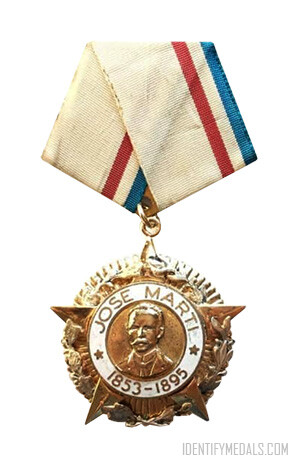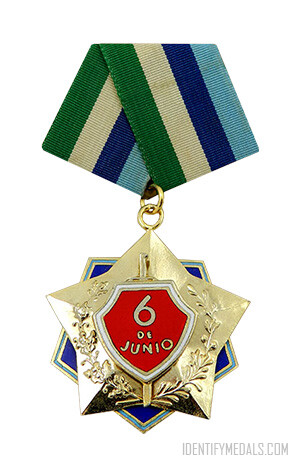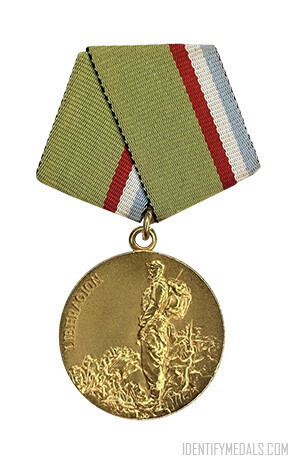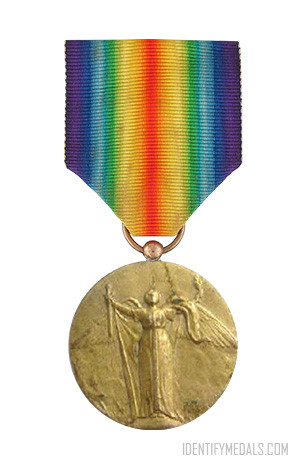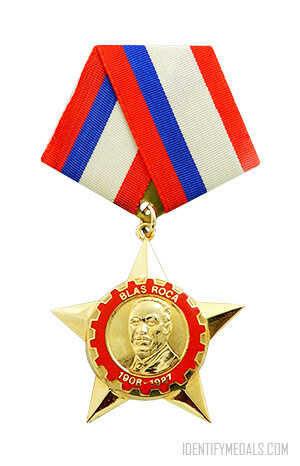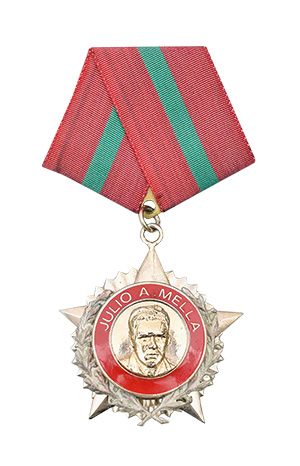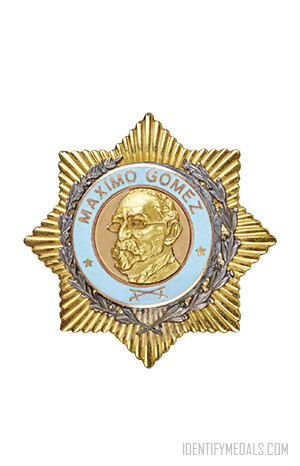The Order of José Martí (or Orden de José Martí in Spanish) is one of Cuba’s most prestigious honors, established on December 2, 1972, under Law No. 1239, and later redesigned and ratified under Decree-Law No. 30 on December 10, 1979. This distinguished order is named after José Martí 🔗, a revered Cuban poet, philosopher, essayist, and national hero whose life and work embody the ideals of freedom, justice, and cultural excellence.
The Order of José Martí represents the highest recognition of achievements that align with Cuba’s revolutionary principles and global solidarity. It underscores the importance of fostering education, culture, and innovation while advocating for peace and human dignity.
The order has two variations of insignia, each reflecting the high honor and significance associated with the award. These variations emphasize the legacy of José Martí and the values he stood for.
The Order of Jose Marti Criteria
The Order of José Martí is awarded to:
- Cuban and foreign citizens: Recognizing their exceptional contributions to humanity and society.
- Heads of State or Government: Honoring their extraordinary efforts in promoting global peace, collaboration, and human progress.
Recipients of this honor are recognized for their:
- Great feats in favor of peace and humanity: Actions that contribute to resolving conflicts, fostering solidarity, or promoting justice and equality on a global scale.
- Contributions to education, culture, science, and sport: Advancing these fields in ways that inspire progress, enlightenment, and the betterment of society.
- Extraordinary merits and creative work: Demonstrating innovation, excellence, and dedication in their respective fields of expertise.
About José Martí
José Martí (1853–1895) was a Cuban intellectual, revolutionary, and martyr whose influence extends beyond his homeland. A prolific writer and philosopher, Martí’s essays, poetry, and political thought advocated for Cuba’s independence from Spanish colonial rule and inspired anti-imperialist movements throughout Latin America. His dedication to education, culture, and justice made him a symbol of liberty and enlightenment, often referred to as the “Apostle of Cuban Independence.”
Martí’s vision of a free, equitable, and united society is encapsulated in the ideals of the order that bears his name.

